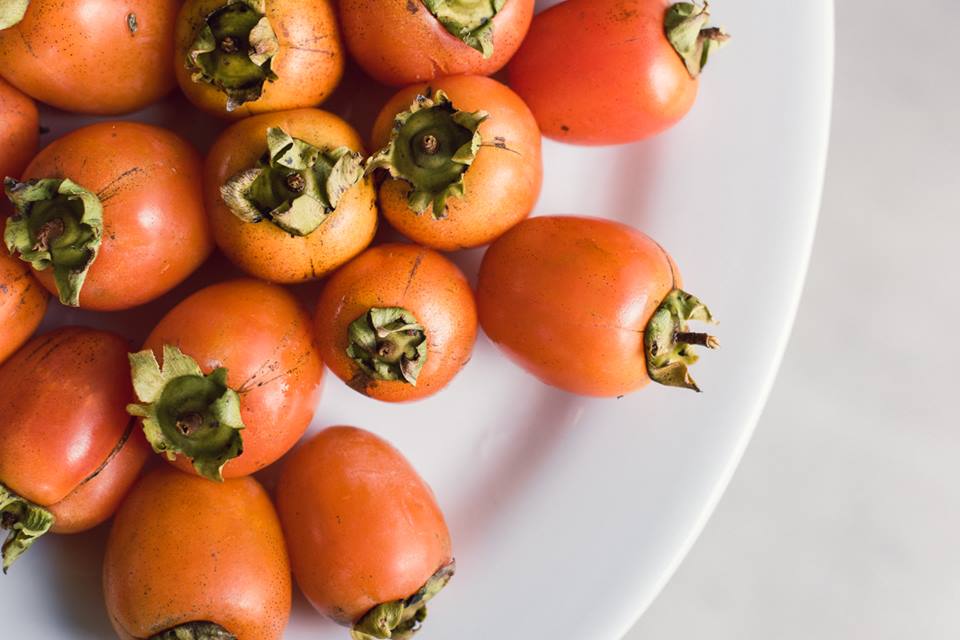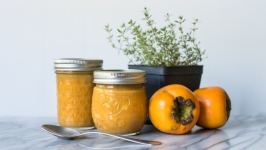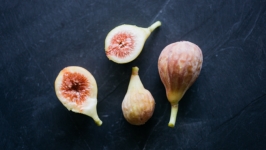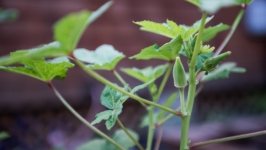Persimmons
During a visit to a farmers’ market in Northeast Florida in fall and early winter, you may spot an unfamiliar orange fruit about the size of a plum – and chances are, that fruit will be a persimmon. Persimmons are a sweet and slightly tangy berry (according to their botanical classification), and there are many varieties available -- but the heart-shaped, astringent Hachiya is a Japanese cultivar most widely grown. Fuyu is a less astringent variety and is squat in shape similar to a tomato.
With fruit in shades ranging from red brown to orange, persimmons are grown in warm, dry climates, yielding fruit for several months starting in early October. That provides a perfect opportunity for a DIY myth buster. According to folklore, you can predict the winter weather with a persimmon seed. Here’s how to do it:
Cut open a persimmon seed and look at the shape of the kernel inside. If the kernel is spoon-shaped, expect a bitterly cold and wet winter. The spoon is associated with a snow shovel in colder climates. If it is fork-shaped, you can expect a milder season with good eats from a winter harvest. If the kernel is knife-shaped, expect icy cutting winds. Now all that is left to do is watch the winter and see if the seed’s prediction comes true.
It has long been believed that eating a persimmon a day will keep the cancer away. In light of a recent study conducted by Kyungnam University that belief may not be without merit. Their research showed that persimmons were found to inhibit the growth of cancer cells.
Next time you’re at the farmers’ market don’t shy away from this locally grown fruit. While unripened persimmons may be a bit astringent, once the fruit gets soft it can be eaten raw or used in jams, chutneys, sorbets, baked goods and other dishes. Whether you eat them for a little extra boost in health or to satiate your curiosity, this fruit is a tasty way to explore locally grown produce.









